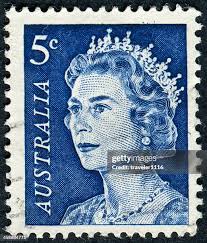
Introduction
Queen Elizabeth II, who reigned for over 70 years, holds a significant place in both British history and modern society. As the longest-serving monarch in British history, her reign has spanned significant global changes, including the end of the British Empire, the Cold War, and the rise of the digital age. Understanding her impact is crucial for comprehending Britain’s contemporary identity and the ongoing evolution of the monarchy.
The Reign of Queen Elizabeth II
Queen Elizabeth II ascended to the throne on February 6, 1952, following the death of her father, King George VI. Her early reign saw the challenging transition of a nation shedding its imperial past, with various former colonies gaining independence. Despite these changes, she managed to maintain a stable monarchy, symbolizing continuity in a rapidly changing world.
Throughout her reign, Elizabeth was seen as a figure of national unity and resilience, particularly during times of crisis, such as the COVID-19 pandemic and the political turbulence within the United Kingdom. Her broadcasts, particularly during significant events like the Silver Jubilee, Golden Jubilee, and annual Christmas messages, served to strengthen ties with her subjects.
Challenges and Controversies
Despite her unwavering commitment to public service, Queen Elizabeth faced numerous challenges and controversies during her reign. The dissolution of the marriages of three of her children attracted intense media scrutiny and public discussion about the relevance of the monarchy in the 21st century. The death of her husband, Prince Philip, and the subsequent fallout experienced with Prince Harry and Meghan Markle further complicated royal dynamics, sparking debates on the monarchy’s role and its future.
The Future of the Monarchy
As the nation continues to reflect on Queen Elizabeth’s legacy, the question of the monarchy’s future remains pertinent. Following her passing on September 8, 2022, her son, King Charles III, has taken the throne, leading to speculation about the changes he might implement. Observers note that the new king faces the dual challenge of modernising the monarchy while maintaining respect for established traditions.
Conclusion
Queen Elizabeth II’s legacy is one of steadfastness and adaptability in a world constantly in flux. Her ability to navigate through numerous societal shifts while upholding the dignity of the monarchy has solidified her status as an iconic figure in British history. As the royal family embarks on a new chapter, the lessons learned from her reign will undoubtedly influence the monarchy’s progression, ensuring it remains relevant amid evolving public sentiment.
You may also like

The Importance of Storytelling in Modern Society

Understanding the Fall Season: Change, Beauty, and Tradition
